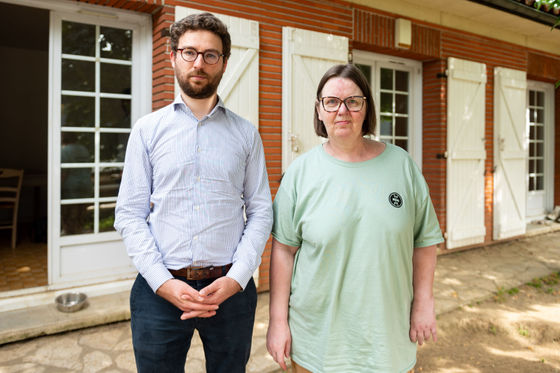Woman sues company after receiving full salary for 20 years despite not working

Many working adults have probably thought to themselves, 'It would be great if I could get paid without working.' Unpaid wages are often an issue, but the local daily newspaper La Dépêche reported that a French woman who was unhappy with her employer's continued payment without her working has filed a lawsuit against her employer.
'These posts are embarrassing for me': Orange responds to a salary that I accuse of paying for nothing for the last 20 years - ladepeche.fr
Paid to Stay Home: French woman sues telecom giant for 20 years of pay without work - The Economic Times
https://economictimes.indiatimes.com/jobs/hr-policies-trends/paid-to-stay-home-french-woman-sues-telecom-giant-for-20-years-of-pay-without-work/articleshow/111203029.cms
Woman Sues Company for Paying Her to Do Nothing for 20 Years
https://www.odditycentral.com/news/woman-sues-company-for-paying-her-to-do-nothing-for-20-years.html
'I'm so lucky': a 20-year-old orange plastic handbag employee with a plain wallet for the business - Paris
https://www.leparisien.fr/faits-divers/je-ne-suis-plus-rien-une-employee-handicapee-dorange-placardisee-pendant-20-ans-porte-plainte-contre-lentreprise-12-06-2024-KMWRIDR2OZA3LEPGFKKB3S3ZEM.php
The man who sued the company that had been paying him his salary for 20 years was Laurence Van Wassenhove, who was born with hemiplegia (loss of face and parts of limbs) and epilepsy but was employed as a secretary and human resources manager by Orange (then France Télécom), a major French telecommunications company.
When Van Wassenhove joined Orange in 1993, he was initially assigned to a disability-friendly job, but in 2002 he applied for a transfer to another part of the country.

The company accepted Van Wassenhove's request for transfer, but his new workplace did not suit him, and the company physician also reported that 'the job is not suitable for Van Wassenhove.'
However, Van Wassenhove was never transferred to a new job, and in 2004, she was finally given no work at all, and since then she has lived at home without going to work, contacting colleagues, or receiving work-related emails. Van Wassenhove, who is also the mother of a son with autism, calls herself an 'employée paria.'
However, Orange continued to pay Van Wassenhove his full salary every month, even after he stopped coming to work. In 2015, an arbitrator was appointed by Orange, but this did not improve the situation and Van Wassenhove continued to receive his salary every month.
Van Wassenhove believes this treatment was intended to induce him to quit the company. He also claims that being paid for work he was not doing constitutes 'moral harassment,' which led to his isolation at the company, and that the loss of work led to severe depression.
'It's not a privilege to be able to stay at home and not work and get paid. It's very unbearable,' Van Wassenhove told media in an interview.
Below is a photo of lawyer David Nabet-Martin (left) and Van Wassenhove (right). Nabet-Martin, who is representing Van Wassenhove in this trial, said, 'For people with disabilities, working means having a place in society, being recognized by society, and being connected to society.'

Orange maintains that it did everything it could to provide Van Wassenhove with the best possible conditions, and that it sought ways to allow him to 'return to work in a suitable position' while paying him full salary plus a non-refundable subsidy, but that Van Wassenhove's frequent sickness absences made such an option difficult to pursue.
Orange said: 'Mr Van Wassenhove was given several opportunities to return to work in alternative posts but he was not reinstated and we continue to offer him regular sick leave.'
Van Wassenhove responded: 'I'm a disabled worker, not an invalid.'
Related Posts:
in Note, Posted by log1l_ks







